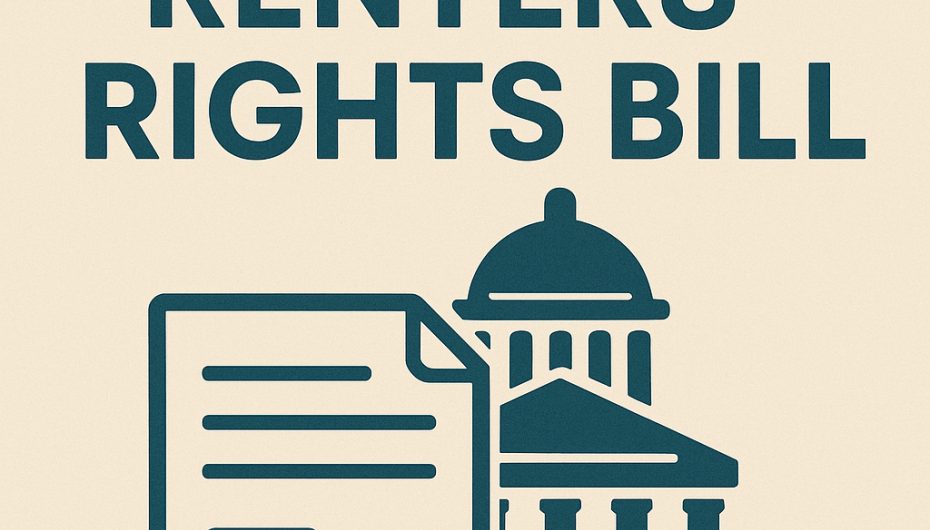 23rd October 2025
23rd October 2025
Tenant Information – Summary of your rights under the Renters’ Rights Bill
We write to inform you of important forthcoming changes in housing law that will enhance your rights as a private renter in England. The Renters’ Rights Bill is expected to become law soon (likely via Royal Assent in late 2025), with many of its measures commencing in 2026.
Below is a summary of the key rights and changes that will affect you. We recommend that you keep this document for reference.
1. More secure tenancy & end of “no-fault” evictions
- The Bill will abolish the current form of “no-fault” evictions under Section 21 Notice in assured shorthold tenancies.
- A new tenancy structure will apply: fixed-term assured shorthold tenancies will cease; instead, all tenancies (from commencement) will be rolling “periodic” assured tenancies, meaning you can stay in your home indefinitely (subject to landlord rights) rather than being tied to a fixed end-date.
- Landlords will only be able to regain possession of the property by relying on specific legally defined grounds (including rent arrears, anti-social behaviour, landlord selling / moving in) rather than simply ending the tenancy without giving a reason.
- In many cases, when the landlord serves notice (in permitted cases), you will receive longer notice periods than presently. For example, for sale or return-to-landlord, four months’ notice may apply.
What this means for you:
You will benefit from greater stability in your home. You will not be able to be evicted on the landlord’s whim (or without reason), and you will have more transparency about why the landlord wants you to leave.
2. Rent increases and bidding-wars banned
- The Bill will introduce new rules governing how and when a landlord may raise the rent. For example, in many cases only one rent review per year will be permitted, and you may have the right to challenge a proposed increase if you consider it excessive compared to local market rates.
- The Bill will prohibit “rental bidding” (i.e., inviting or accepting offers above the advertised rent) and require the asking rent to be published.
What this means for you:
You will have more certainty around your rent and less risk of being outbid by other prospective tenants or facing an unjustified rent hike mid-term.
3. Right to request a pet and no discrimination
- The Bill introduces a formal right for tenants to request permission to keep a pet in their rental home, and landlords will only be able to refuse on reasonable grounds.
- It will become unlawful for landlords or letting agents to discriminate against tenants on the basis of receiving benefits or having children (for example refusing an applicant simply because they have children).
What this means for you:
If you wish to keep a pet, you will have the right to make a request and expect the landlord to consider it reasonably. Also, prospective tenants will have stronger protection against unfair discrimination when applying.
4. Improved property standards and enforcement
- The Bill will extend to the private rented sector a strengthened standard of property condition (sometimes described as the “Decent Homes Standard” or via what is known as Awaab’s Law for serious hazards) – i.e., landlords must act within prescribed timeframes to remedy serious hazards such as damp and mould, excess cold, structural defects.
- A private rented sector database will be introduced (a “rented property portal”) and a landlord/letting-agent ombudsman scheme will be strengthened so that tenants will have access to improved redress and transparency.
What this means for you:
You can expect higher minimum standards of property condition and greater accountability for your landlord. If a serious issue arises (e.g., dangerous hazard) the landlord will have to act within a defined timeframe and you will have stronger routes for complaint/resolution.
5. Payments, deposits and tenancy fees
- The Bill will further restrict upfront payments such as large advance rent or large deposits beyond what is reasonable, and strengthen protections around tenant fees.
What this means for you:
You will see clearer, fairer charges at the start of your tenancy. Unreasonable demands for large sums up front should become a thing of the past.
6. What we at Boydens will do
- We will update our tenancy-agreements, information packs and procedures to reflect the new law once it is in force.
- We will keep you informed of the date when the new regime applies to your tenancy (whether new or existing).
7. What you should do now
- Please keep a copy of this summary and refer back when the Bill comes into force.
- Maintain records of any communication with us or the landlord (for example repair requests, rent increase proposals) so you have a clear audit trail.
- If you wish to request a pet, or if you consider a proposed rent increase to be unfair, raise this in writing with us so that your request/objection is documented.
- If your property has any hazard (for example damp, mould, structural issue) you should notify us in writing and monitor the response time, under the new regime the landlord will be legally required to act in a timely way.
8. Important caveats
- The Bill is not yet in full force. Some parts will require secondary regulations and may come into force at different dates.
- If you have any queries about your specific tenancy, or if you are concerned about how the changes apply to you now, you may wish to seek independent legal advice. This summary does not constitute full legal advice.
- Some rights may depend on your tenancy type (for example assured tenancy in the private rented sector in England) and the precise date of commencement of the relevant provision.
- This summary is provided by Boydens for your information; we will update you as further details become available and as the law is implemented.
We trust this summary helps you understand the major changes that the Renters’ Rights Bill will bring. Please note this is a summary of the bill and not legal advice. If you have any questions, please contact us.







